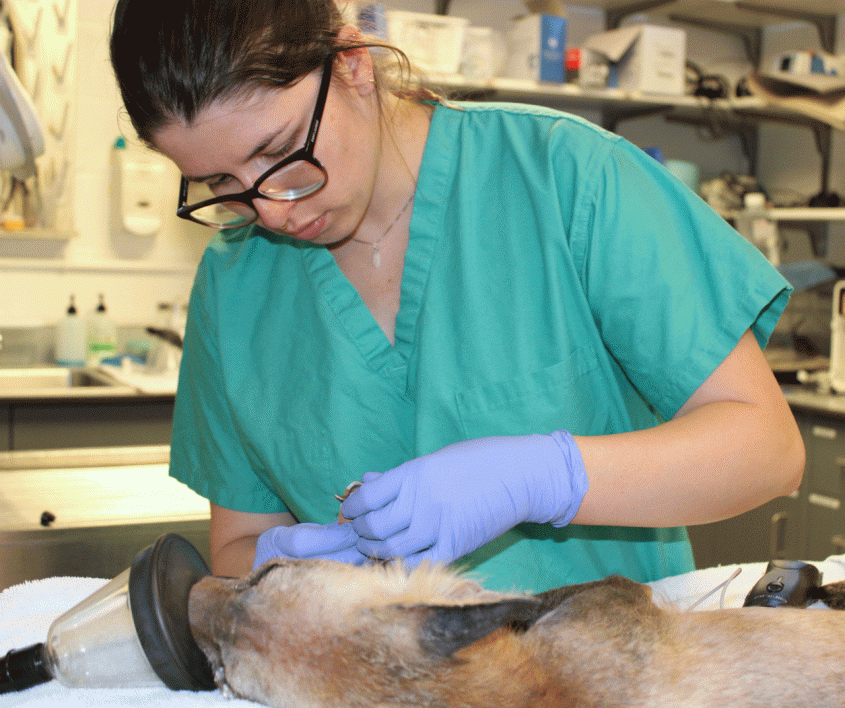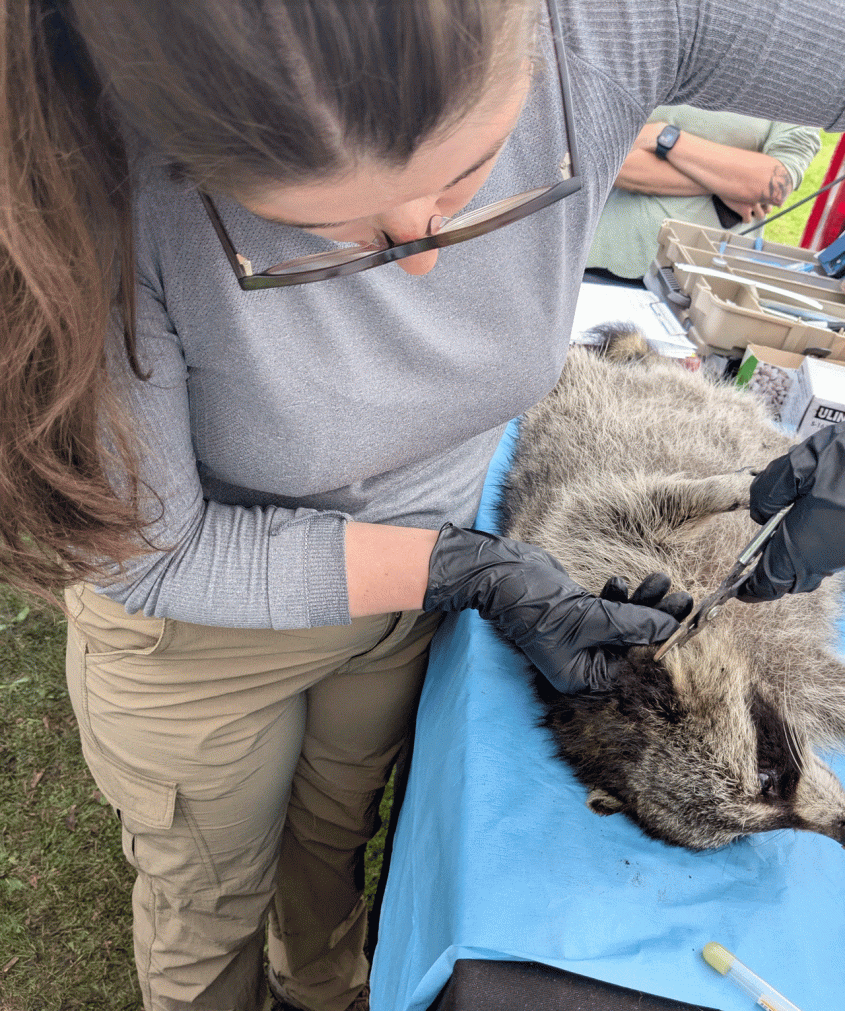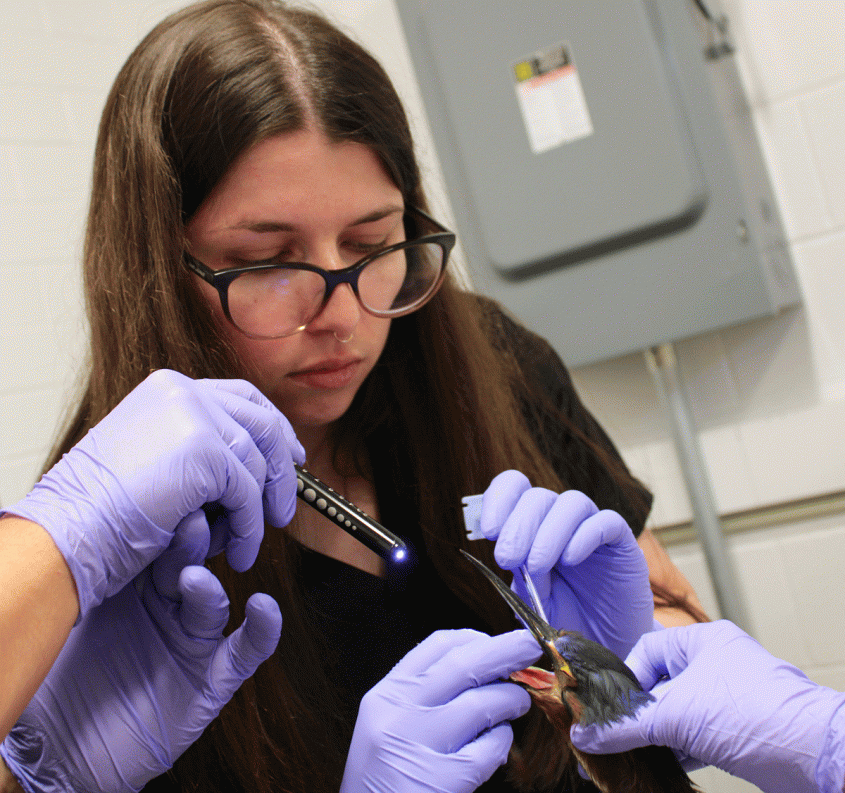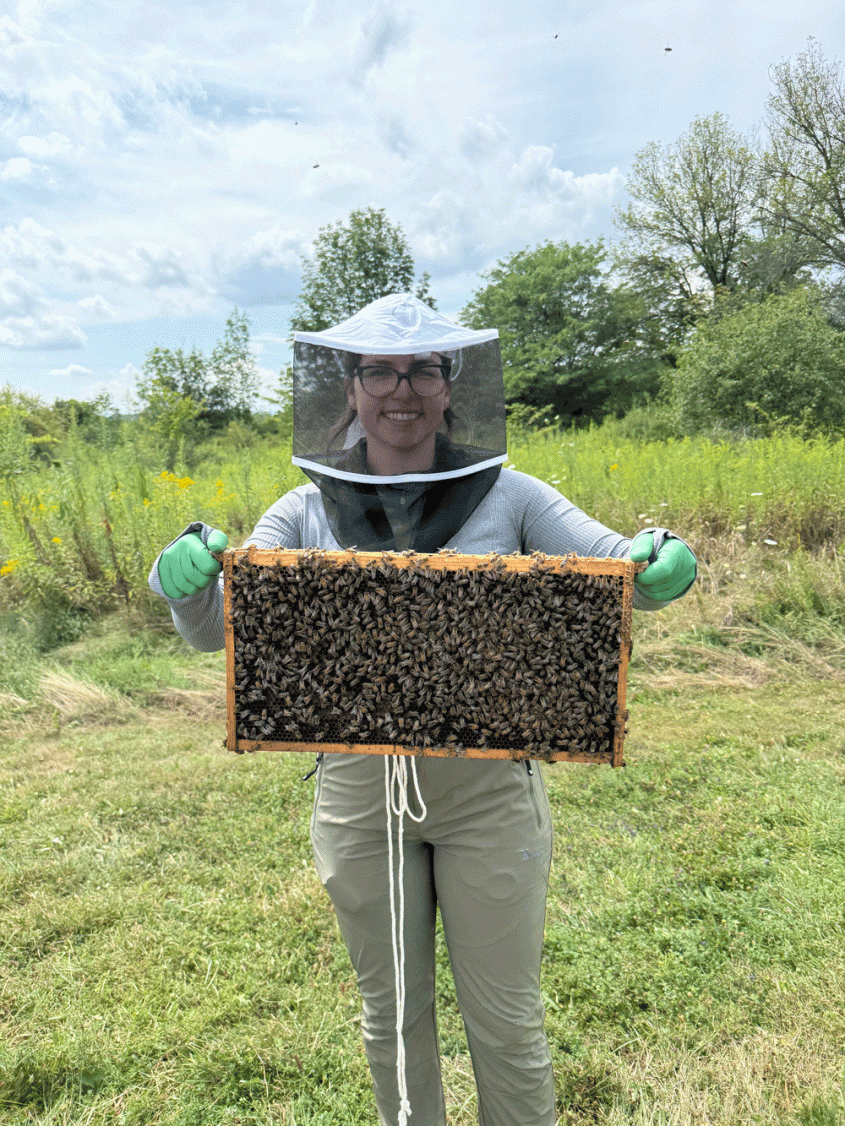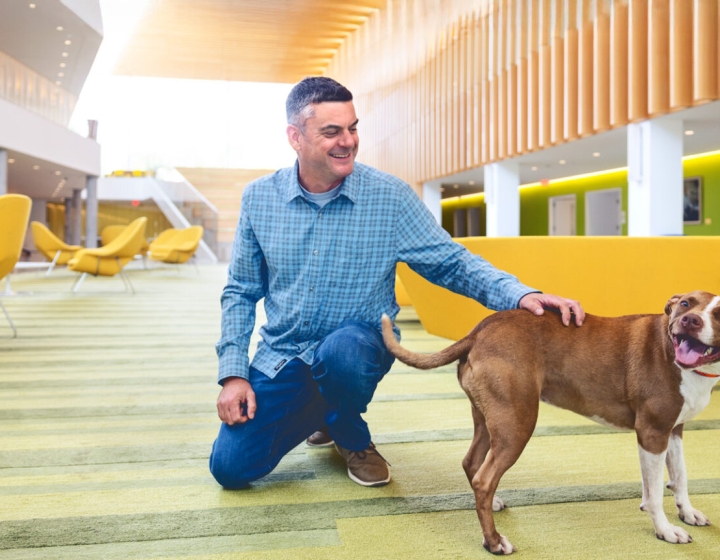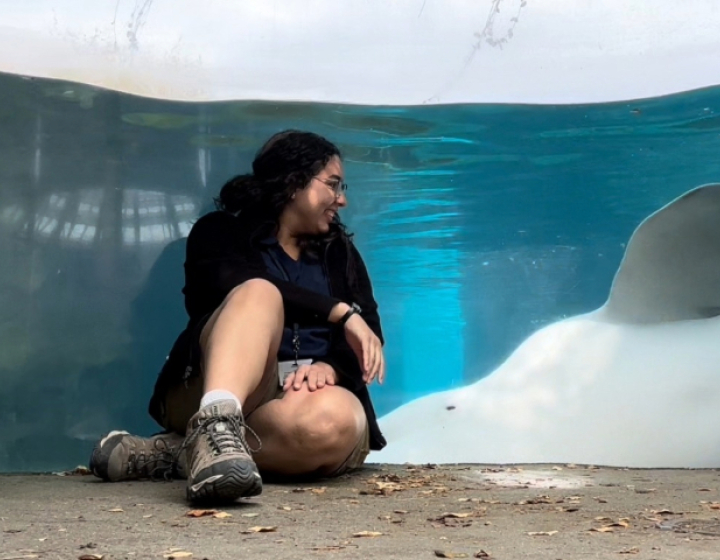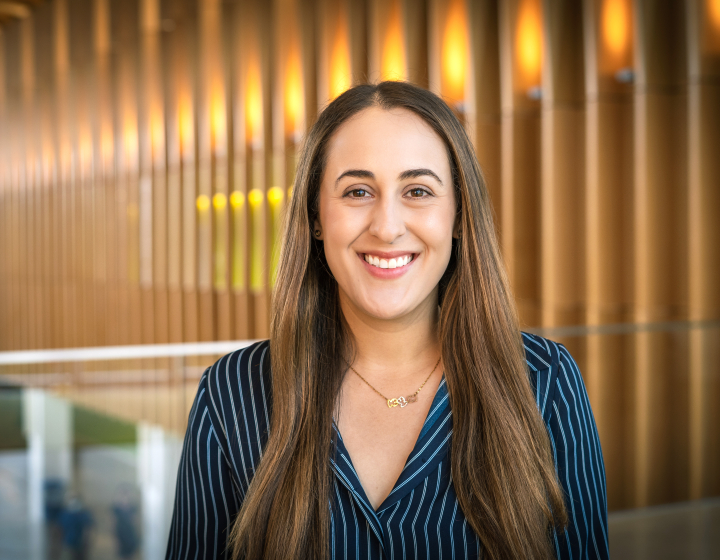Cornell launches residency program in wildlife population health
The Cornell K. Lisa Yang Center for Wildlife Health (CYCWH) has launched a new residency in wildlife population health, building on the Cornell University College of Veterinary Medicine (CVM)'s leadership in preparing veterinarians to meet the urgent and evolving challenges facing our planet’s wild species.
The new four-year program — one of only three wildlife-focused veterinary residencies in North America to be approved by the American College of Zoological Medicine (ACZM) — responds to a growing need for veterinarians trained in free-ranging wildlife health, a discipline that bridges individual patient care and population-level management.
Residents will train under mentors who are board-certified by the ACZM. Upon completion of the program, they will be eligible to pursue board certification and prepared to specialize in the discipline of wildlife population health.
Cornell’s breadth of facilities, faculty expertise and partnerships will allow residents to gain a wide range of experiences, preparing them to lead in a field where the health of wildlife, the health of people, and the state of the environment are deeply intertwined.
“Our program is unique in that residents will gain a strong clinical foundation working with free-ranging native wildlife in a hospital setting,” says Sara Childs-Sanford, D.V.M. ’99, section chief of wildlife medicine at the college and residency director. “Our residents can receive almost all aspects of their training right here through Cornell programs.”
A training ground like no other
As the first resident in the new wildlife population health program, Dr. Taylor Haefs is discovering that Cornell is more than a place to learn — it’s a living classroom where every case brings a new lesson in caring for wildlife. From the moment Haefs arrived, she was immersed in experiences that bridge hands-on clinical care with broader questions of population and ecosystem health.
At the Janet L. Swanson Wildlife Hospital, Haefs and future residents will gain valuable clinical experience treating more than 2,500 wild animals each year, from hawks and owls to foxes and turtles. The hands-on work gives residents the chance to recognize, diagnose and treat diseases that affect free-ranging populations, building a strong foundation in wildlife medicine.
Residents also collaborate with specialists at the Cornell University Hospital for Animals and work with licensed wildlife rehabilitators, forming a holistic understanding of how animal, environmental and human health intersect.
“If you’re going to manage populations of wild animals, it helps to have held one, treated one, observed their behavior, and seen what affects their health,” Haefs explains. “That perspective connects everything, from the clinic to the wild.”
CYCWH residents in wildlife population health also rotate through several specialized programs that reflect the full spectrum of wildlife population health work. Through the New York State Wildlife Health Program — a partnership between the Cornell Wildlife Health Lab and the New York State Department of Environmental Conservation — residents gain firsthand experience in state-level disease surveillance and population management for free-ranging wildlife.
They also train with Cornell’s wildlife pathologists at the Animal Health Diagnostic Center, learning to identify and investigate wildlife diseases while contributing to research and diagnostics that inform conservation efforts worldwide.
The residency program also includes aquatic animal care, working with Cornell’s Aquatic Animal Health team to investigate wild fish health and disease outbreaks, and contributing to research on emerging fish pathogens and state-level conservation efforts.
As part of the program’s pollinator health component, residents take part in “Honeybee Health and Conservation,” a two-week intensive course led by Dr. Robin Radcliffe. The course offers a deep dive into honeybee biology, ecology and disease, while also providing hands-on experience managing hives and learning about the regulatory and veterinary aspects of pollinator care.
Shortly after arriving at Cornell, Haefs suited up and gained firsthand experience in assessing colony health and understanding the critical role bees play in global ecosystems.
Research with real-world impact
Each resident will complete a capstone research project culminating in peer-reviewed publications and a Master of Professional Studies through Cornell’s Department of Natural Resources and the Environment, choosing a focus such as wildlife ecology and management, conservation biology, or fishery and aquatic science.
Fieldwork through the Cornell Wildlife Health Lab offers another critical dimension, as residents partner with the New York State Department of Environmental Conservation on wildlife population monitoring and management projects. Additional elective fieldwork with federal agencies or international One Health initiatives led by CYCWH faculty allows residents to tailor their training to their interests and career goals.
Haefs’ own research is already underway. This fall, she will join Dr. Jenny Bloodgood, wildlife veterinarian with Cornell Wildlife Health Lab and assistant professor of practice at the College, in the Adirondack Mountain region of New York to pilot a disease-monitoring project in American martens, a weasel-like carnivore. The team will collect blood samples and health data to establish baseline values for the species, information vital to understanding disease exposure and overall ecosystem health.
“It’s rewarding to be involved in every step of the process, from safely anesthetizing and sampling animals to analyzing data that will inform conservation decisions,” Haefs shares.
Bloodgood says the project reflects the kind of applied science the residency is built around. “Wildlife everywhere is under growing pressure, from climate change and habitat loss to emerging diseases and contaminants,” she says. “Our goal is to train wildlife veterinarians who can meet those challenges with both scientific rigor and compassion.”
For Haefs, those challenges are precisely what make the work meaningful. “Everything is interconnected,” she says. “The smallest actions, including how we treat an individual animal or engage with the public, can have ripple effects for entire populations.”
Leading the way for wildlife health
The residency is made possible — and will be sustained in perpetuity — through funding from the Cornell K. Lisa Yang Center for Wildlife Health, which champions science-based solutions to pressing conservation challenges through applied research, education, engagement and policy.
Haefs, who holds both a D.V.M. and a M.P.H., brings experience in clinical care and population-level health to her role as the first CYCWH resident. She is eager to help shape the future of wildlife population health through a One Health lens. “Residencies focused on wildlife population health are exceptionally rare,” she says. “I’m excited to be a part of this groundbreaking program that will set an example for how our field can structure advanced training that prepares veterinarians to serve the needs of wildlife and society in meaningful ways.”
Written by Melisa DeGroot
Photos provided



